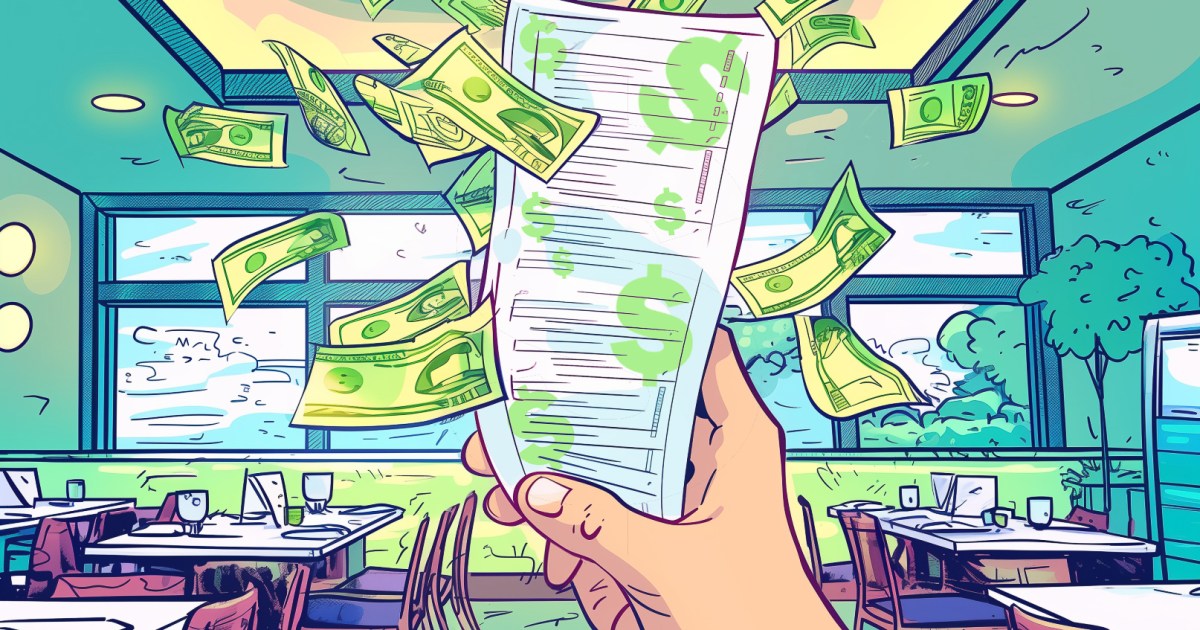My business partners and I opened our NoPa restaurant, Che Fico, in 2018. From the start, we included a 4% surcharge to cover the additional costs we faced under the city’s mandated health care coverage plan, which requires restaurants to contribute to a city fund for employees.
West
NASA re-establishes communication with Voyager 1 interstellar spacecraft that went silent for months

NASA and Voyager 1 are communicating back and forth again, after the most distant human-made object in space stopped sending usable data back to the space agency nearly five months ago.
NASA’s Jet Propulsion Laboratory said Voyager 1, which is more than 15 billion miles away from Earth, stopped sending readable data back to scientists on Nov. 14, 2023, though mission controllers could still see the spacecraft was receiving commands and operating as intended.
The Southern California-based engineering team responsible for Voyager 1 investigated the problem and learned the issue was connected to one of the spacecraft’s three onboard computers, which is called the Flight Data Subsystem (FDS).
The FDS packages the data collected by the spacecraft before sending it back to earth.
RARE STAR EXPLOSION EXPECTED TO BE ‘ONCE-IN-A-LIFETIME VIEWING OPPORTUNITY,’ NASA OFFICIALS SAY
NASA’s Voyager 1 spacecraft is depicted in this artist’s concept of traveling through interstellar space, or the space between stars, which it entered in 2012. (Credit: NASA/JPL-Caltech)
Engineers discovered the chip responsible for storing a portion of the FDS memory was faulty, making the code unusable.
Had the spacecraft been located on Earth, engineers would be able to go in and replace a chip, but because it is in interstellar space, engineers needed to figure out a way to move the affected code somewhere else in the FDS memory.
The code is so large that there is not a single location to store the entire section of the code. So, engineers divided the affected code into sections and planned to move them to various locations in the FDS.
NASA PUBLISHES NEVER-BEFORE-SEEN PHOTOS OF ‘RAVIOLI’ MOON ORBITING SATURN

After receiving data about the health and status of Voyager 1 for the first time in five months, members of the Voyager flight team celebrated in a conference room at NASA’s Jet Propulsion Laboratory on April 20. (Credit: NASA/JPL-Caltech )
Engineers also had to make sure the code worked together as a whole after being moved.
Once the code was reconfigured, engineers transmitted the changes to the FDS memory on April 18.
The signal takes about 22.5 hours to travel through space until it reaches Voyager 1, and then another 22.5 hours for a signal to come back to earth.
VOYAGER 1 DETECTS ‘HUM’ WHILE IN INTERSTELLAR SPACE: REPORT

NASA’s Voyager 1 spacecraft, shown in this illustration, has been exploring our solar system since 1977, along with its twin, Voyager 2. (Credit: NASA/JPL-Caltech)
On April 20, the mission team received a response from Voyager 1 and confirmed the modification worked. As a result, engineers now have the ability to check the health and status of the spacecraft.
In the coming months, the team plans to move and adjust additional portions of the FDS software that was affected, including portions that send scientific data back to mission control.
Voyager 1′s odyssey began in 1977 when the spacecraft and its twin, Voyager 2, were launched on a tour of the gas giant planets of the solar system.
After beaming back dazzling postcard views of Jupiter’s giant red spot and Saturn’s shimmering rings, Voyager 2 hopscotched to Uranus and Neptune. Meanwhile, Voyager 1 used Saturn as a gravitational slingshot to power itself past Pluto.
Read the full article from Here

San Francisco, CA
Opinion | Restaurateur: New law aimed at transparency will hit SF restaurants hardest

When Che Fico reopened post-pandemic, we were driven by a mission to rectify long-standing industry injustices that disproportionately favored a select few—primarily servers and bartenders—at the expense of other workers who didn’t receive tips and worked long hours in substandard conditions. We instituted a 10% surcharge, increased pay across the board and introduced new benefits, such as a 401(k) plan with a 4% match and profit sharing.
It was not easy. We had to adjust our shared tip pool several times to ensure everyone was included and that it was fair to our entire staff. We also increased hourly wages to compensate for potential tip losses. This model epitomized free-market capitalism, where ownership collaborated with labor to find common ground and consumers had the choice to support a business that resonated with their values. Our menu was always clear that the charge would be added to the final bill.
Now a new law known as the “junk fee” bill, taking effect July 1, aims to reshape California’s dining industry by banning restaurants from adding surcharges or service fees to their bills. Instead they’d have to raise menu prices, baking the surcharge in.
While this may initially appear to benefit consumers, it will disproportionately harm small businesses—the latest move in a pattern of well-meaning yet detrimental policy decisions targeting the restaurant industry. It also obscures the challenge of operating in San Francisco, where voters and officials have repeatedly approved costly additional mandates that operators elsewhere do not face.
We can all agree that hidden fees are frustrating. Nothing is worse than booking a hotel room at an advertised price, enjoying your stay and upon checkout, finding your bill laden with resort charges, Wi-Fi charges, valet parking and other surprise fees and taxes. I fully understand the frustration. I am a consumer myself. But the vast majority of restaurants don’t operate this way. If they charge surcharges or service fees, they post it on menus and let guests know when they book a reservation.
Transparency is the goal, and this is one way for operators to show customers all the things they are paying for, beyond the cost of food. Guests have thousands of restaurants to choose from, especially in San Francisco. They can simply decide a certain restaurant isn’t worth the fee. And no restaurateur who believes in good service and repeat business wants to leave a bad taste in a customer’s mouth upon dropping the check.
But the new law focuses more on appearances than on the operational realities of managing a restaurant in one of the nation’s most expensive urban environments.
Gavin Newsom enacted San Francisco’s Health Care Security Ordinance during his tenure as San Francisco mayor. As governor, he continues to influence policy in ways that strain local enterprises. The health ordinance has been one of the most damaging things to happen to San Francisco small businesses and can be directly linked to the beginning of the surcharge trend here. One of the most pervasive problems with that legislation is that it punishes businesses for growing and hiring more workers, adding a cost of several dollars per hour per employee for businesses with 20 or more workers. But rather than use his post as governor to propose a smart, statewide reform of the health ordinance, this new junk fee bill will throw out all surcharges regardless of their purpose or how they are communicated to consumers.
Advocates of eliminating service charges argue that doing so protects consumers, but that fails to consider the pressure San Francisco restaurants face—challenges beyond typical market fluctuations. They contend with some of the highest insurance premiums in the country, soaring utility rates from providers like Pacific Gas & Electric and a labor market characterized by escalating wages and staffing shortages. Consider:
Labor costs are rising: San Francisco’s minimum wage rose from $10.74 per hour in 2014 to $18.67 in 2024—a 74% increase approved by voters and the Board of Supervisors. Such spikes put a significant burden on labor-intensive sectors like the restaurant industry.
Inflation is increasing utility bills and the cost of goods: The pandemic further intensified supply chain disruptions, pushing the costs of ingredients up by about 15% in San Francisco. Officials have approved numerous rate increases for PG&E, leading to a 60-77% increase in commercial rates in the last decade, even as PG&E rakes in billions in profits.
Rent and property costs are soaring: The city’s commercial real estate market has also surged, with rents increasing by about a third since 2014. Rent or mortgage payments are the third-highest expense for many restaurants, after labor and cost of goods.
Surcharges have enabled small businesses to manage these rising costs without shocking customers with drastic or frequent price increases and allowed them to convey these external cost pressures. Removing them could lead to a sudden spike in dining costs, further deterring customers and pushing restaurants toward insolvency.
The irony is stark. Policymakers, comfortably dining at San Francisco’s top restaurants, seem oblivious to the adverse effects of their decisions on those serving them. By eliminating the option to communicate cost pressures through surcharges, the law does not support consumers. This will lead to decreased consumer spending, fewer shifts for waitstaff, reduced orders for suppliers and lower tax revenue from a once-thriving industry.
The “junk fee” law misunderstands basic economic principles: Thin operating margins and insufficient profits can lead businesses to close, which affects the entire community—workers, suppliers, service providers and local artisans. In my own restaurants, our surcharge has allowed us to improve pay across the board, offer a 401(k) with a 4% match and create profit-sharing. If Newsom’s intention is to dismantle these programs, then he is certainly being effective.
Hopefully, before the law takes effect, state leaders will have a dose of common sense and will revise the legislation to preserve the rich diversity of San Francisco’s dining scene. Otherwise, they will simply be compounding the issues that began with the initial health ordinance, without acknowledging the benefits workers and restaurant patrons receive surcharges are clearly spelled out.
David Nayfeld is the co-owner of Back Home Hospitality, which includes Che Fico. Find him at @davidnayfeld on X and Instagram.
Denver, CO
Colorado lawmakers end session with camaraderie, finalizing property tax reform — though not all is resolved

Unlike last year, the end of the Colorado legislative session Wednesday came with no fireworks — no protest walkouts, no intracaucus tensions boiling over into public, no last-minute implosions of keystone policy bills.
The final day of lawmakers’ nearly four-month session instead was dominated by noticeably brighter spirits as the General Assembly put the finishing touches on a slew of legislation that had dominated the final weeks. Notable bills touched on tax credits, property tax reform, gun restrictions and major land use changes that will shape the state for years and, supporters hope, decades to come.
Contentious housing bills that died or were vetoed last year were brought back, in varying forms, and passed. Lawmakers and the governor struck grand bargains to defuse ballot measures. And Democrats have settled into a now-familiar — if not consistently united — seat at the head of the legislative table.
Some of the last proposals to cross the finish line on the final day — which ended with the Senate’s adjournment just before 8 p.m., before dark — included an income tax credit for Colorado families with household incomes under $90,000, to cover up to two years of tuition and fees at in-state public universities, colleges and technical schools; a bipartisan bill to remake the public school finance system; a series of tax reforms that include a tax credit of up to $3,200 for dependent children, scaling down as family income increases, as children age and if state revenue growth slows down; and an income tax reduction of $450 million this year.
When the legislature convened in January, it was with a palpable sense of dread. Lawmakers, lobbyists and observers feared the session would reflect the angst and tension that marred last year’s regular and special meetings of the General Assembly.
Instead, the session unfolded largely as a casual observer would’ve expected.
Where tensions did rise, they did so mostly within standard — though at times still pointed — etiquette under the Gold Dome, even if public exchanges between lawmakers outside the building’s marble halls sometimes descended into personal attacks.
Sen. Dylan Roberts, speaking Wednesday about a compromise on a bill penalizing gun owners who don’t secure handguns left in vehicles, lamented “disrespectful” comments made in the House about an amendment from his chamber. But the Frisco Democrat ended on a simple request to “disagree better.”
Flare-ups still emerged. The House’s Democratic leadership implemented new protocols to limit what they considered offensive speech on the floor. Some House Republicans repeatedly castigated their Democratic colleagues on social media as supporting pedophiles and criminals, based on votes opposing various GOP-backed bills.
Those comments contributed to a tense meeting between Democratic lawmakers and their leadership last week, with legislators demanding that leaders do more to address attacks online.
But by the last day of the session on Wednesday, most of the session-defining measures had already been resolved — with largely perfunctory agreements and votes remaining.
The Senate and House had already hammered out differences on a bill supported by Gov. Jared Polis that, once signed, will promote denser development along transit corridors. They avoided the last-day drama of last year, when an omnibus land use bill died at the 11th hour because of irreconcilable differences between the chambers, both led by large Democratic majorities.
A proposal to ban the sale and transfer of certain high-powered, semiautomatic firearms — which had hung heavy over the final weeks amid Democratic division over how much to embrace the policy — was tabled peacefully on the penultimate day. Backers pledged to continue that fight in future years.
Meanwhile, a slew of other gun bills, some intended to improve enforcement of existing laws, passed against strong Republican opposition, but without extraordinary incidents.
Most of Wednesday was dominated by tributes to departing members, a steak cook-off in the House and the Capitol’s version of spring cleaning. A Colorado Politics reporter played the harp on the House floor. Lawmakers showed parody videos on the projector screens on the House’s walls.
Perhaps the highest point of drama wasn’t focused inside the Capitol at all.
A bipartisan bill to reshape state property tax policy was subject to months of wrangling before being introduced the Monday before the session’s end — this week. Shortly after the bill was unveiled, lawmakers were taken by surprise when a prominent business group, Colorado Concern, announced its opposition and refused to pull back from its support for two tax-related ballot initiatives that Republicans and Democrats alike warn would devastate the state budget if voters approve them this fall.
Sponsors of the proposal, Senate Bill 233, said they had been trying to find a middle ground with Colorado Concern, in exchange for the group dropping its support for the ballot initiatives. The bill, now heading to Polis for his signature, would make adjustments in property tax calculations to save homeowners potentially a few hundred dollars compared to projected increases under current law, while also reducing tax rates for commercial properties. But the ballot measures are aimed at more drastic changes.
By mid-afternoon Wednesday, sponsors said those negotiations had broken down. It also didn’t escape notice that representatives of Colorado Concern had not shown up to testify publicly on the measure.

“I will note there are some organizations conspicuously absent today who did not choose to come to testify and share their opinion about the bill — and what they would like to see or not see changed,” said Rep. Emily Sirota, a Denver Democrat, as a public hearing on the bill wrapped up Tuesday. “That, to me, is pretty disappointing, because that is how the work is done. It is done in the light of day, in front of everyone.”
Senate President Steve Fenberg, a Boulder Democrat, said to reporters Tuesday morning, about Colorado Concern: “To me, they are not taking actions that would increase their relevance in this building.”
The ballot measures, one of which has been approved for the ballot already, still threaten to complicate state lawmakers’ work in coming months.
But as the session wound down on its final day, geniality underscored the often-contentious atmosphere inside the building. The House had finished with the bulk of its work, and, as the Senate entered its seventh hour of tributes for departing members, a pack of restless representatives wandered over with handwritten signs to send their colleagues a final message:
Get back to work.
Sen. Rachel Zenzinger, herself a term-limited Democrat, and Sen. Barbara Kirkmeyer, a Republican, waved them off so that the goodbyes could continue at their own pace.
Stay up-to-date with Colorado Politics by signing up for our weekly newsletter, The Spot.
Seattle, WA
Uber, Doordash, and other gig workers in Seattle may be about to face a pay reckoning
Since January, gig delivery workers in Seattle have been reaping the benefits of a local law mandating a certain pay level. Just months later, they could see their incomes cut under proposed revisions.
PayUp, which took effect in the city in January, requires DoorDash, Uber, Instacart, Grubhub, and other delivery apps to pay independent contractors the equivalent of the city’s $19.97 minimum wage — a rule that the app companies have opposed.
But CB 120775, a proposal introduced last month by Seattle City Council President Sara Nelson, would lower the minimum pay for drivers and roll back protections for workers, according to a draft of the legislation.
Under the proposal, gig workers would be paid an hourly rate of $19.97 for their time spent retrieving and delivering orders. While that seems consistent with Seattle’s minimum wage for employees, the gig workers covered by the PayUp law are only paid for “active time” spent working on orders — meaning that time spent trying to claim an order is uncompensated. They’re also responsible for their own costs, such as gas.
Those aspects of the job had led Seattle’s city council to create a system that pays workers based on the miles they drive and the minutes they spend on the job. PayUp also demands that no offer pays less than $5.
The latest proposal would do away with that $5 minimum and the per-minute payment. Instead, gig workers would get paid 35 cents per mile — down from the current 74 cents.
It would also eliminate or cut back other protections for gig workers in the city. For example, a PayUp rule giving workers two minutes to review an order before accepting it would shrink to 45 seconds.
The bill is scheduled for a committee vote on Thursday. If it passes, the proposal could face a vote by the full Council on May 21.
‘That makes a difference’
If that vote passes, the bill will result in a significant pay cut for gig workers, according to estimates released Monday by Working Washington, a group that advocated for PayUp. For example, a gig worker who spent five hours of active time and drove 32 miles would make $15.81 an hour — below the city’s minimum wage — after accounting for expenses, they calculated.
Hourly pay would be even lower — $13.17 — after accounting for the time that a gig worker would likely spend on the apps just to find and claim orders, according to the study.
Justin Taylor, who has delivered and driven for multiple apps in Seattle over the last four years, said his pay has increased by $100 a week on average since PayUp went into effect — even though he’s delivering fewer orders than he did before the law.
“That makes a difference,” he told BI. “It allowed me to do things like install new front brakes on my car.”
If the proposal before Seattle’s City Council becomes law, Taylor said, he’ll once again be reliant on customers’ tips to cover his expenses and make money working for services like DoorDash.
The delivery companies have made it clear that they oppose the changes that took effect in January. In emails and calls to action sent to gig workers, DoorDash, Instacart, Uber, and others have claimed that there are fewer orders for gig workers to claim.
Some shoppers for Instacart have also had to drive miles out of their way to deliver orders in Seattle’s suburbs as the company routed them to stores outside city limits.
Seattle City Council President Nelson did not respond to a request for an interview from Business Insider. In a hearing on the bill on April 25, Nelson said that she had worked with some of the delivery companies as well as Drive Forward, a group whose leadership includes multiple current and former employees for Uber and DoorDash, to draft the bill.
“I want to make sure that people realize this was an agreement that was forged between Drive Forward and the network companies,” she told the Council.
A DoorDash spokesperson told BI: “Predictably, Working Washington’s opposition to this proposal is not rooted in reality. The proposed law guarantees Dashers will earn nearly $20 per hour on delivery in addition to mileage and tips. We’re grateful that Council President Nelson and Drive Forward were able to reconvene stakeholders and reach a compromise that better serves Dashers, local businesses, and consumers in Seattle.”
A spokesperson for Instacart said the company “supports the pragmatic approach being taken by the new Seattle City Council as they balance the needs of workers, customers, and businesses across the city and reform the current version of PayUp legislation.”
“Uber supports the complete package, and believes it will go a long way to ease the operational burdens and costs experienced by customers throughout Seattle and reduce delivery times,” a spokesperson told BI.
But gig worker Taylor said he was dismayed that the delivery companies have had such a direct role in developing the bill that would replace PayUp.
“To me, it’s basically saying we’re allowing lobbyists to write our laws,” Taylor said.
Do you deliver food, groceries, or other items as a gig worker and have a story idea to share? Reach out to this reporter at abitter@businessinsider.com
-

 Politics1 week ago
Politics1 week agoThe White House has a new curator. Donna Hayashi Smith is the first Asian American to hold the post
-

 Politics1 week ago
Politics1 week agoStefanik hits special counsel Jack Smith with ethics complaint, accuses him of election meddling
-

 Politics1 week ago
Politics1 week agoAnti-Trump DA's no-show at debate leaves challenger facing off against empty podium
-

 News1 week ago
News1 week agoAs student protesters get arrested, they risk being banned from campus too
-

 News1 week ago
News1 week agoVideo: Police Arrest Columbia Protesters Occupying Hamilton Hall
-

 World1 week ago
World1 week agoNine on trial in Germany over alleged far-right coup plot
-

 World1 week ago
World1 week agoStrack-Zimmermann blasts von der Leyen's defence policy
-

 Politics1 week ago
Politics1 week agoNewsom, state officials silent on anti-Israel protests at UCLA













